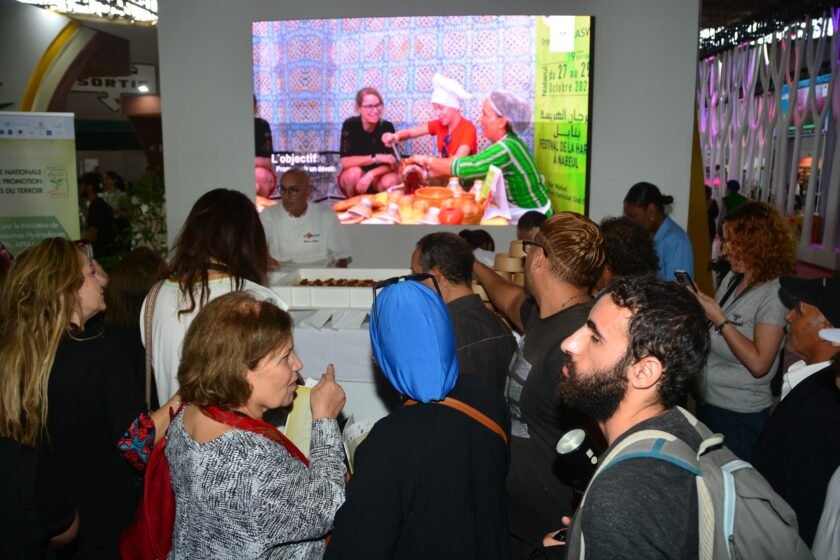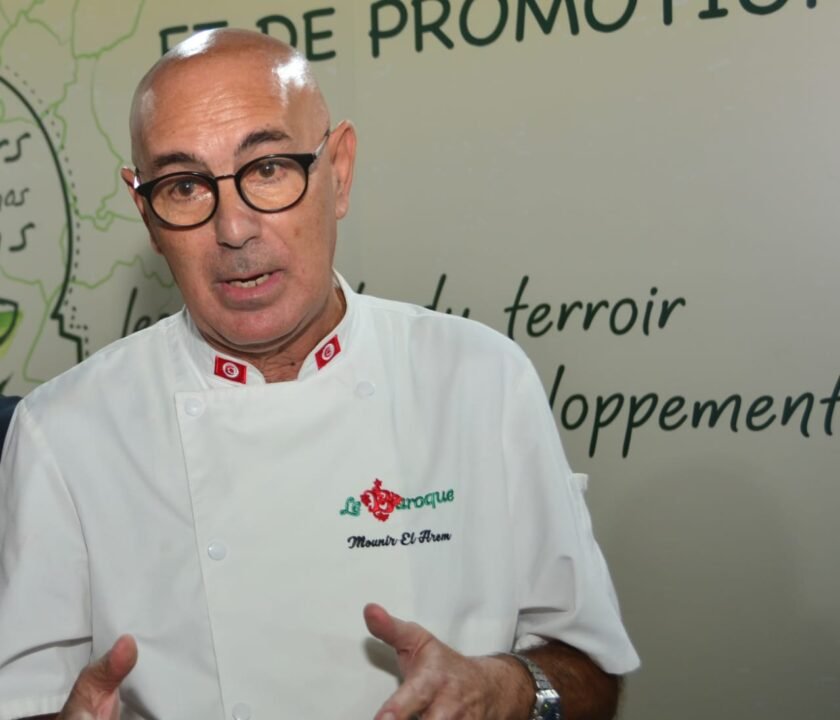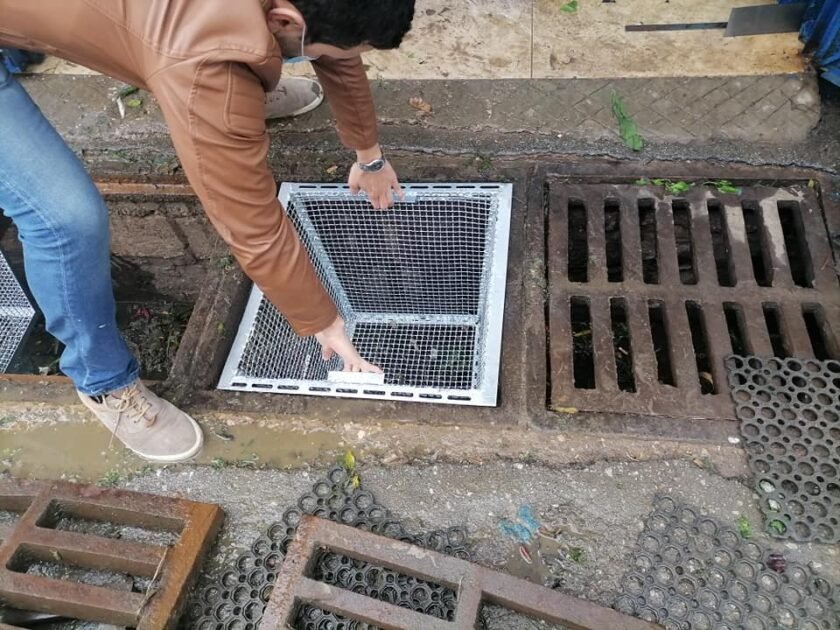Photo credit AbdelMajid Thabet
On the sidelines of the 15th edition of the International Agricultural Investment and Technology Exhibition (SIAT 2024), a press conference was held on October 31, 2024 at the Kram Exhibition Centre to present the first National Strategy for the Valorisation and Promotion of Local Produce, by the Directorate General of Agricultural Production at the Ministry of Agriculture, Hydraulic Resources and Fisheries (DGPA) and the Agricultural Investment Promotion Agency (APIA), with the support of the PAMPAT project implemented by the United Nations Industrial Development Organization (UNIDO) and financed by the State Secretariat for Economic Affairs of the Swiss Confederation (SECO).
The strategy, which was developed thanks to the public-private collaboration of seven ministries (Agriculture, Tourism, Industry, Cultural Affairs, Economy, Trade and Environment) and private sector employers (UTAP, UTICA, CONECT) grouped in a multi-institutional Steering Committee, is currently being implemented in the pilot regions of Kairouan and Nabeul under the logo ‘Terroirs de nos Régions’.
At the SIAT show, 6 operators from each region will be on the stand dedicated to the Strategy to present their new product and service offers developed around local produce.
The 5 producers who won a prize for excellence in the last edition of the Concours des Produits du Terroir organised by APIA every two years, which rewards the best local products from the different regions of Tunisia, are also present to testify to the impact of this competition for the promotion of local products.
The APIA’s Director General attended the press conference, as representatives of the DGPA, UNIDO, and the Swiss Embassy. This event was an opportunity to meet these exhibitors and the members of the institutions on the National Strategy Steering Committee and to take part in the tasting sessions hosted by chef Mounir El Arem.
Hanene Labidi-Ben Ayed, representative of the Ministry of Agriculture, points out that the project involves seven ministries, including industry, commerce, the environment and culture. She adds: ‘Most of the participating companies have seen their sales increase by 30%, which translates into a significant financial impact. This momentum has also created jobs in often remote regions, encouraging other entrepreneurs to turn to this promising sector.
In addition to the economic benefits, the strategy has also increased consumer interest in local products. ‘Tunisians are turning more and more to these products’, observes Ms Labidi-Ben Ayed, a trend that was accentuated by the Covid-19 crisis, a period during which demand for natural and organic products soared.
In response to growing consumer interest in local products, Tunisia is focusing increasingly on making the most of its agri-food heritage. Today, the ambition is to go one step further and offer immersive experiences where local and foreign customers can discover the heritage associated with Tunisian local products using a multi-sensory approach.
With this in mind, in May 2022, the Ministry of Agriculture (DGPA-APIA) officially launched the first National Strategy for the Development and Promotion of Local Produce, which aimed to promote regional development around local produce and position Tunisia as a gourmet tourist destination rich in traditions and customs.
The national action plan, which is part of the National Strategy for the Development and Promotion of Local Produce, focuses on four key areas:
-Agricultural production and promotion of local products:
-Marketing of local products ;
-Territorial marketing, intangible heritage and tourism based on local products;
-Governance and structuring of the local produce sub-sector.
The Strategy therefore proposes guidelines for exploiting the full growth potential of local products, which goes far beyond the sale of traditional foodstuffs. The ultimate aim of promoting local products is to create jobs and income, notably through the creation of ancillary economic activities such as agri-tourism, cultural festivals, gastronomy, crafts and the development of new products processed from the flagship products of each region.
Two pilot regions: Kairouan and Nabeul
The strategy has been implemented since 2022 in two pilot regions in Tunisia, namely Kairouan and Nabeul. With the participation of all local stakeholders and the support of the PAMPAT project (UNIDO/SECO), three flagship products have been selected in each pilot region: rose, Oueslati olive oil and El Ala prickly pear for Kairouan; harissa, orange blossom and Bouargoub prickly pear for Nabeul.
The institutions support 250 operators in these two regions who work together to promote their region’s three flagship local products. The beneficiaries include producers of local produce, farmers, hotels, gîtes, guest houses, restaurants, tables d’hôtes, patisseries, ice-cream parlours, delicatessens, travel agencies, and cultural associations.
In a statement to TunisianMonitorOnline, Chef Mounir Arem said that his participation in the press conference was at the request of the PAMPAT project as part of the 15th edition of the International Agricultural Investment and Technology Exhibition (SIAT 2024). He stressed that gastronomy is a pillar of Tunisian identity and heritage in the same way as its monuments and historic sites, gastronomy appeals to Tunisians and international tourists alike. This attraction to gastronomy has given rise to culinary tourism, which enables people to discover a region thanks to its gastronomy and local produce. Tunisia is a land of flavours, with a wealth of products from every region. Gastronomy is a way for tourists to discover a region through its local produce and heritage.

Photo credit AbdelMajid Thabet
Chef Mounir El Arem has sublimated Nabeul and Kairouan’s various flagship products through original recipes, adding his touch to the event along with a tasting session. “Local produce has become our main ingredient, inserting a touch of originality into our dishes,” says the chef.

Photo credit AbdelMajid Thabet
Chef Mounir El Arem is a Bailli Delegate, at the Rôtisseurs chain (Baillage Tunisia), Vice-President, at the Tunisian Federation of Gastronomic Heritage and International Delegate at the National Academy of Cuisine. He was appointed Ambassador for Tunisian cuisine at the World Tourism Organisation (UNWTO) in Madrid. Chef Mounir is known and recognised worldwide for his expertise and mastery of cooking and tasting techniques. Through his innovative spirit in gastronomic techniques
TunisianMonitorOnline (NejiMed)




